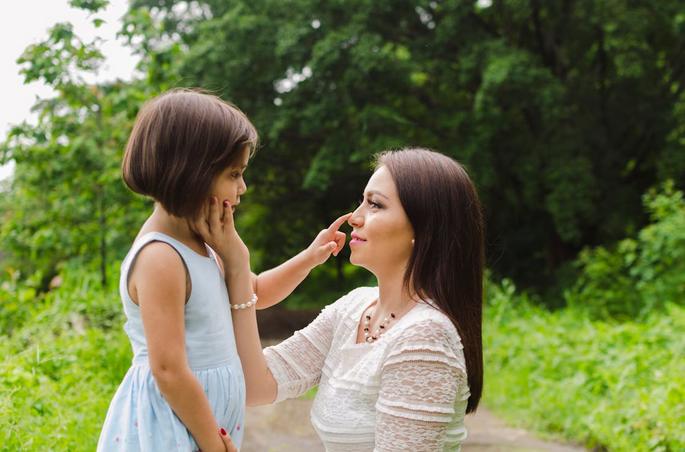
Cultivating Empathy: Listening and Understanding Your Partner
Empathy is one of the most vital ingredients in nurturing a healthy, loving relationship. It allows partners to deeply connect with each other, fostering a sense of understanding, support, and emotional intimacy. At its core, empathy is the ability to understand and share the feelings of another person. In the context of a romantic relationship, empathy enables partners to not only listen to each other’s words but to truly connect with their inner emotional experiences, thereby strengthening their bond.
While empathy is a skill that can be developed over time, it requires conscious effort, patience, and a willingness to grow together as a couple. This chapter explores the concept of empathy in relationships, how to cultivate it, and why it is an essential component for building and sustaining long-term love.
1. What is Empathy and Why is it Important in Relationships?
Empathy is the capacity to recognize, understand, and even feel the emotions of another person. In romantic relationships, empathy goes beyond merely sympathizing with your partner’s struggles. It involves putting yourself in their shoes and seeing the world from their perspective, understanding their emotions without judgment. This emotional connection allows you to respond with care, compassion, and support, rather than defensiveness or dismissal.
Empathy is particularly critical in relationships because it fosters open, honest communication and creates a safe space for vulnerability. When both partners feel understood and validated, they are more likely to express their needs and emotions openly, knowing that their feelings will be met with understanding rather than criticism.
The ability to empathize with your partner’s emotional experience helps to navigate conflicts more constructively. Instead of viewing disagreements as battles to be won, you can approach them as opportunities for growth, learning, and deeper connection. Empathy enables you to acknowledge and address the emotional roots of conflicts, rather than simply focusing on the surface-level issues.
Moreover, empathy builds trust and intimacy. When you listen attentively to your partner’s feelings and respond with empathy, you show them that you value their perspective, care about their emotional well-being, and are committed to fostering a harmonious, supportive relationship. This creates a strong emotional foundation upon which both partners can feel safe, respected, and loved.
2. The Difference Between Sympathy and Empathy
Many people confuse empathy with sympathy, but the two are fundamentally different. Sympathy involves feeling pity or sorrow for someone else’s misfortune, often from a distance. When you sympathize with your partner, you might say, “I’m so sorry you’re going through this,” but it can sometimes come across as detached or patronizing. While sympathy may be well-intentioned, it doesn’t necessarily create a deep emotional connection or understanding of your partner’s experience.
Empathy, on the other hand, involves immersing yourself in your partner’s emotional experience. It’s not about feeling sorry for them, but about feeling with them. In an empathetic exchange, you acknowledge their emotions and connect with them on a deeper level. Instead of simply expressing sorrow, you might say, “I can imagine how difficult that must be for you. It sounds really painful.” This type of response conveys that you are not only aware of their feelings but are emotionally attuned to them.
Empathy requires you to listen deeply, without interrupting or trying to fix the situation immediately. It calls for you to step outside of your own perspective and suspend judgment, creating an environment in which your partner can feel truly heard and understood.
3. The Role of Active Listening in Cultivating Empathy
One of the most powerful ways to cultivate empathy in your relationship is by practicing active listening. Active listening involves fully engaging with your partner when they are speaking, rather than just hearing the words without really processing them. It means being present, both physically and mentally, and giving your partner your undivided attention.
Active listening requires a few essential components:
- Giving Full Attention: When your partner is speaking, make an effort to eliminate distractions. Put away your phone, turn off the TV, and focus on them. By offering your full attention, you demonstrate that you value what they have to say and that their thoughts and emotions matter to you.
- Listening without Interrupting: It can be tempting to jump in with advice or solutions, but often, what your partner needs most is to be heard. Resist the urge to interrupt or speak over them. Instead, allow your partner to fully express themselves before offering your thoughts.
- Reflecting and Paraphrasing: To demonstrate that you are truly listening, try reflecting or paraphrasing what your partner has said. For example, if your partner says, “I’ve been feeling really overwhelmed at work,” you could respond with, “It sounds like work has been really stressful for you lately.” This not only confirms that you’re paying attention but also helps to clarify and deepen the conversation.
- Asking Open-Ended Questions: Show curiosity and interest in your partner’s experience by asking open-ended questions. Instead of asking yes/no questions, ask things like, “How did that make you feel?” or “What has been the hardest part of this for you?” This invites your partner to explore their feelings more deeply and opens the door to more meaningful dialogue.
- Non-Verbal Cues: Your body language plays a significant role in active listening. Make eye contact, nod occasionally, and use facial expressions to convey empathy and understanding. Your non-verbal cues should align with the emotional tone of the conversation.
Active listening fosters a deeper emotional connection because it allows you to truly understand your partner’s perspective. When your partner feels heard, it creates a sense of validation and emotional safety, making it easier for them to open up about their feelings and experiences.
4. Cultivating Emotional Awareness
To be truly empathetic, it’s essential to cultivate emotional awareness—both of your own emotions and of your partner’s emotions. This awareness enables you to connect more deeply and respond more appropriately to your partner’s needs.
Emotional awareness involves recognizing and naming your own feelings as they arise. For example, if you’re feeling frustrated, sad, or anxious, acknowledging those emotions allows you to communicate them more clearly to your partner. By being open about your emotional state, you invite your partner to do the same, creating a space where both partners feel comfortable expressing vulnerability.
It also involves tuning in to your partner’s emotions. This requires paying attention not just to their words, but also to their body language, tone of voice, and facial expressions. Often, emotions are communicated more through non-verbal cues than through words alone. For example, if your partner is speaking about a difficult situation but their posture is closed off or their voice sounds strained, these physical cues may indicate that they’re feeling vulnerable, hurt, or stressed.
Being emotionally aware helps you to respond in ways that are compassionate and supportive, rather than reactive or dismissive. It enables you to respond to your partner’s needs with kindness and patience, even when their emotions are intense or difficult to navigate.
5. Empathy and Conflict Resolution
Empathy is especially important in conflict resolution. It’s natural for disagreements to arise in relationships, but how you handle those disagreements can make all the difference. When conflicts occur, empathy can prevent them from escalating and can help to foster resolution and healing.
Instead of getting defensive or dismissive when your partner expresses hurt or frustration, approach the situation with a mindset of understanding. Try to put yourself in their shoes and imagine how they might be feeling. For example, if your partner is upset because you forgot an important event, instead of becoming defensive or minimizing their feelings, acknowledge their hurt: “I can see why you’re upset, and I’m sorry for letting you down. That wasn’t my intention.”
Empathy in conflict resolution requires patience and the ability to stay emotionally attuned to your partner, even when emotions are running high. It’s about listening to their feelings without judgment, validating their experience, and working together to find a resolution that respects both of your needs.
In conflicts, it can also be helpful to express your own feelings with empathy. Instead of saying, “You always do this,” try framing your feelings using “I” statements, such as, “I feel hurt when this happens.” This approach prevents your partner from feeling blamed and opens the door to a more compassionate dialogue.
6. Cultivating Empathy for Yourself
Empathy is not only about understanding your partner’s emotions but also about understanding your own emotions. Self-empathy is essential because it enables you to acknowledge and honor your own feelings, needs, and boundaries. When you practice self-empathy, you are better able to communicate your feelings clearly and assertively, while also respecting your partner’s needs.
To cultivate self-empathy, take the time to check in with yourself regularly. Notice how you’re feeling in different situations and give yourself permission to experience those emotions fully. Avoid self-criticism or judgment; instead, be kind and compassionate with yourself. By doing so, you model emotional awareness and self-care for your partner, which strengthens the overall emotional dynamic in the relationship.
7. Empathy as a Shared Practice
Empathy is a two-way street. While it is essential for one partner to practice empathy, it’s equally important that both partners work together to create a mutually empathetic environment. Empathy is not something that one person can “do” for the relationship—it requires both partners to actively listen, understand, and support each other.
To foster shared empathy in your relationship, make a conscious effort to encourage open communication and emotional vulnerability. Check in with your partner about their needs and feelings, and offer support in ways that resonate with them. Practice empathy not only during difficult times but also during moments of joy and celebration, reinforcing the idea that you are both emotionally attuned to each other’s experiences.
8. Conclusion: The Power of Empathy in Building Stronger Connections
Empathy is the foundation of a deeply connected, compassionate, and resilient relationship. By listening actively, understanding your partner’s emotions, and responding with care and sensitivity, you create a safe space where both partners can thrive. Empathy strengthens emotional bonds, facilitates conflict resolution, and fosters a deeper level of intimacy. It is a skill that can be cultivated with practice, but it requires both partners to be committed to listening, learning, and growing together.
As you nurture empathy in your relationship, remember that it is not about being perfect—it’s about being present. The more you make the effort to truly understand and connect with your partner’s emotions, the more your relationship will deepen and flourish.




